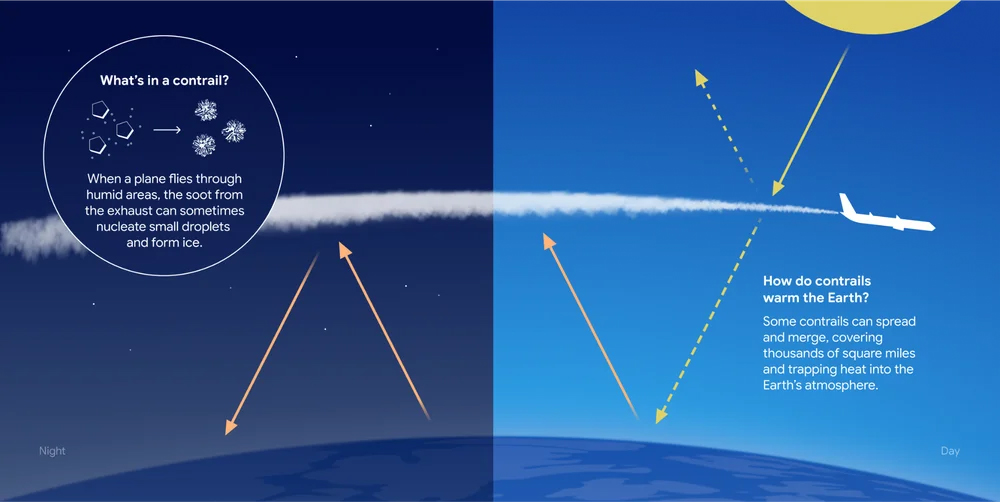
American Airlines recently completed a first-of-its-kind test. It used AI to combat the negative environmental impact of aviation on a total of 70 test flights, with the help of Breakthrough Energy and Google Research’s Climate and Energy team.
When you see planes flying overhead, you may notice that they leave a trail of white mist behind. They aren’t trying to do skywriting; that’s a kind of smoke, actually. These long puffs are called contrails, and they’re not very good for the climate.
Contrails form behind a plane if it’s flying through humid air. The more humid the air, the bigger the contrail will be. Unfortunately, contrails also trap heat in the atmosphere that would otherwise leave naturally.

An infographic detailing the environmental impact of contrails. Image credit: Google
According to the Intergovernmental Panel on Climate Change’s 2022 report, contrails account for 35% of aviation’s impact on global warming.
The proposed solution is simple: map the regions of humidity so that pilots can adjust their route or altitude to avoid creating contrails at all. The teams at Google, American Airlines, and Breakthrough Energy combined their data on flight paths, weather, and satellite imagery (among other data), then used AI to predict where contrails would form.
On flights where the pilots took advantage of the AI’s predictions, they successfully reduced contrail formation by 54% as measured by distance. The number of test flights was small, so this data isn’t perfect, but it’s a good indication that we will be able to make a meaningful impact this way.
“The contrail avoidance was very easy, very intuitive,” said American Airlines Captain Deborah Hecker in a video released by Google. “We already change altitude pretty often to avoid turbulence, so this is completely similar. In the future, it could change how we flight plan our airplanes, and I think that’s incredible.”
Header image credit: Shutterstock
Source: American Airlines and Google Via: The Verge
MobileSyrup may earn a commission from purchases made via our links, which helps fund the journalism we provide free on our website. These links do not influence our editorial content. Support us here.


